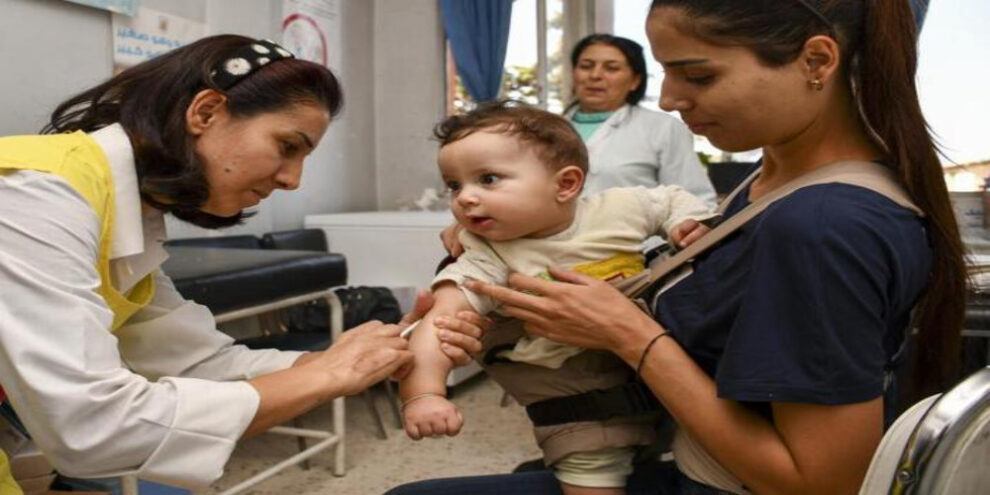AMMAN, 27 April 2023 – According to the latest data released by UNICEF[1], over 4.3 million children in the Middle East and North Africa (MENA) region did not receive a single dose of measles vaccine between 2019-2021.
Furthermore, almost 3.8 million children were under-vaccinated for the diphtheria, tetanus and pertussis (DTP) vaccine during the same period. Shockingly, over 2.27 million of these children did not receive even a single dose.
“It is sad and concerning that the region, which had one of the highest immunization coverage rates in the world, witnesses a setback in immunization rates leading to an increase in the number of zero-dose and under-vaccinated children and compromising years of progress; this puts children in our region at a high risk of vaccine-preventable illnesses,” said Adele Khodr, UNICEF Regional Director for the Middle East and North Africa Region.
While the COVID-19 pandemic exacerbated the situation, ongoing conflicts, displacement and increased numbers of refugees living in dire conditions, all combined with already weak health and water and sanitation systems, increase the risk of the spread of diseases. Over the past two years, outbreaks of measles and circulating vaccine-derived poliovirus (cVDPV) have been reported in several countries in the region.
It is also concerning that over 80 per cent of children – or over 3.36 million children – who are zero-dose for measles in the region are from five countries only.
Concerted efforts are needed to catch up on the vaccination of children missed during the pandemic and ensure that all children receive vaccines at the right time and age, regardless of their nationality, place of birth, or legal status.
UNICEF calls on governments, professional health and medical associations, civil society sector, and communities in the MENA region to urgently prioritize immunization efforts, including through public financing and building resilient primary healthcare systems to respond to public health needs.
“Investing in immunization is a proven and cost-effective way to protect children and communities from disease. UNICEF remains committed to working with governments and partners in the MENA region to expand access to vaccines, strengthen health systems, and ensure that every child has the opportunity to thrive and reach their full potential,” said Khodr.
Source : Relief Web















